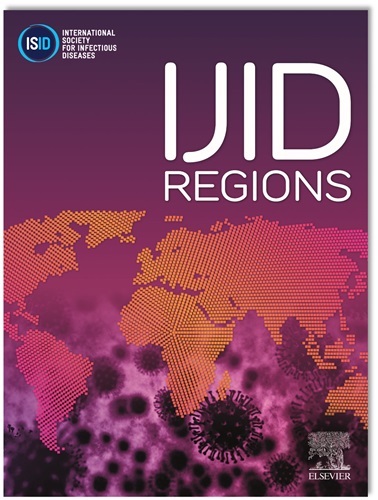Evolution of pharmacist roles in antimicrobial stewardship: A 20-year systematic review
IF 4.8
2区 医学
Q1 INFECTIOUS DISEASES
引用次数: 0
Abstract
Introduction
Whilst pharmacists are recognized as key contributors to antimicrobial stewardship (AMS) programs, the extent of their participation varies in different countries. We report a systematic review of pharmacist roles in AMS over 20 years.
Methods
A systematic review of the literature describing pharmacist-led or driven AMS and its outcomes published in English between January 01, 2000, and June 30, 2020, was conducted across the main databases for research publication.
Results
The analysis included 111 papers, of which 77.5% (86/111) were from high-income countries (HIC) predominantly from the USA. While pharmacist-led or driven AMS interventions were reported only from HICs in the early 2000s, the review found a progressive rise in such studies from all income settings with audit and feedback being the most frequent intervention reported. Between 2016 and 2020, studies on pharmacists-led or driven outpatient AMS and interventions related to beta-lactam or penicillin allergy were reported from HICs. Key outcomes reported include improved appropriateness of antimicrobial therapy and decreased consumption of antimicrobials.
Conclusion
Existing evidence demonstrates the positive impact of pharmacists’ involvement in AMS. There needs to be a concerted effort in facilitating pharmacist roles in AMS across all countries, irrespective of income setting.
药剂师在抗菌药物管理中的角色演变:20 年系统回顾。
导言:虽然药剂师被认为是抗菌药物管理(AMS)计划的主要贡献者,但他们的参与程度在不同国家却各不相同。我们对药剂师 20 年来在抗菌药物管理中的作用进行了系统回顾:方法:我们对 2000 年 1 月 1 日至 2020 年 6 月 30 日期间以英文发表的、描述药剂师领导或推动的 AMS 及其成果的文献进行了系统性回顾,回顾范围涵盖主要的研究发表数据库:分析包括 111 篇论文,其中 77.5%(86/111)来自高收入国家(HIC),主要是美国。本世纪初,只有高收入国家(HIC)报道了由药剂师主导或推动的 AMS 干预措施,但综述发现,所有收入环境中的此类研究都在逐步增加,其中审计和反馈是报道最多的干预措施。2016 年至 2020 年期间,高收入国家/地区报告了由药剂师主导或推动的门诊病人 AMS 以及与β-内酰胺或青霉素过敏相关的干预措施的研究。报告的主要成果包括提高了抗菌药物治疗的适当性,减少了抗菌药物的消耗:现有证据表明,药剂师参与急性呼吸系统综合症治疗具有积极影响。在所有国家,无论收入背景如何,都需要共同努力促进药剂师在急性呼吸系统综合症中发挥作用。
本文章由计算机程序翻译,如有差异,请以英文原文为准。
求助全文
约1分钟内获得全文
求助全文
来源期刊
CiteScore
18.90
自引率
2.40%
发文量
1020
审稿时长
30 days
期刊介绍:
International Journal of Infectious Diseases (IJID)
Publisher: International Society for Infectious Diseases
Publication Frequency: Monthly
Type: Peer-reviewed, Open Access
Scope:
Publishes original clinical and laboratory-based research.
Reports clinical trials, reviews, and some case reports.
Focuses on epidemiology, clinical diagnosis, treatment, and control of infectious diseases.
Emphasizes diseases common in under-resourced countries.

 求助内容:
求助内容: 应助结果提醒方式:
应助结果提醒方式:


